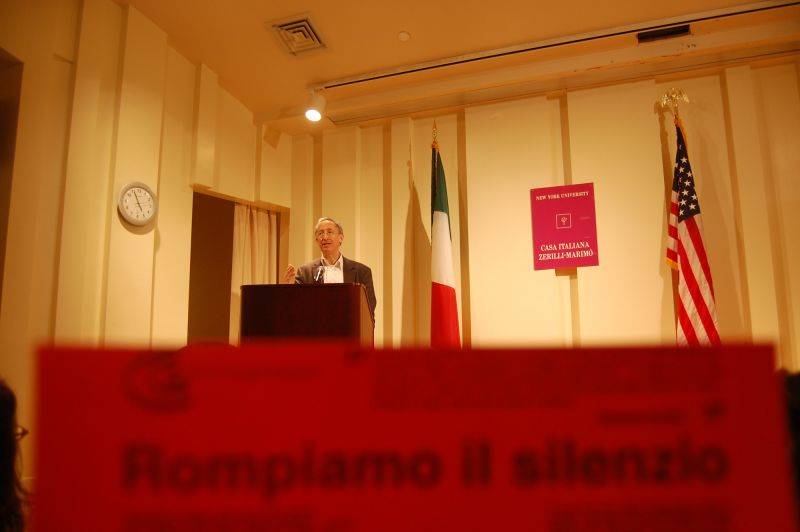Casa Italiana Zerilli-Marimò (NYU) in Manhattan. Historian and public intellectual Paul Ginsborg analyzes Berlusconi and his opposition at "Denuncia: Speaking Up in Modern Italy"
“A regime and its opposition are intimately linked,” observed historian Paul Ginsborg. “The character of a regime demarcates the quality and quantity of its opposition.”
Ginsborg, in his keynote address to the conference, “Denuncia: Speaking Up in Modern Italy,” held March 27-28 at Casa Italiana Zerilli-Marimò (NYU) in Manhattan, was concerned specifically with the nature of the regime of Premier Silvio Berlusconi, and the forces that oppose it.
The British-born Ginsborg became a professor of contemporary European history at the Università di Firenze in 1992, after many years of teaching at Cambridge University. He has written several highly-regarded books, including "A History of Contemporary Italy: Society and Politics, 1943-1988," and "Italy and Its Discontents, 1981-2001," which radical scholar Perry Anderson has called “two of the most commanding histories of postwar Italy.”
Ginsborg, 64, also is a man of the Left who has distinguished himself as a passionate defender of democracy in his adopted country. He has been at the forefront of the opposition to Berlusconi over the past 15 years and has participated in campaigns to unify Italy’s fractious Left. This soft-spoken, transplanted Englishman, of Jewish heritage, is one of Italy’s most prominent and respected public intellectuals.
During his hour-long talk at Casa Italiana, Ginsborg noted how difficult it is to oppose a regime that, for all its abuses of power, operates within a political system that still is democratic. He said that although he regards political satirist Sabina Guzzanti as Italy’s “bravest and most brilliant comedian,” he disagrees with her contention that Italy is no longer a democracy. Contrasting Guzzanti’s “menaced” position in Italy – she lost her TV show “RAIot” and has faced intense harassment and legal threats – with the acceptance accorded great and scabrous 18th century British satirists like Hogarth, Ginsborg understands why Guzzanti believes that Italian democracy has been mortally wounded.



































i-Italy
Facebook
Google+
This work may not be reproduced, in whole or in part, without prior written permission.
Questo lavoro non può essere riprodotto, in tutto o in parte, senza permesso scritto.